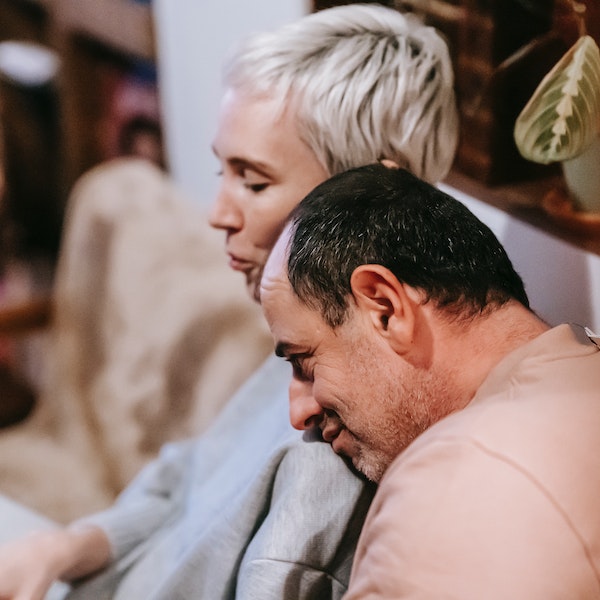If you think that you can live alone in this world, then you are absolutely wrong. You always need connections to keep life moving.
Healthy relationships can become a reason for your healthy lifestyle or happiness, but we often forget to nourish our relationships in the fast-moving digital world.
However, these connections with family, friends, and romantic partners are at the core of our well-being. They are the pillars that support us through life’s ups and downs.
So, there is always a powerful impact of having strong and meaningful relationships that stand by you in your life.
The importance of healthy relationships is undeniable, so in this post, you will find some practical ways and actionable steps to build healthy relationships. Moreover, you will explore challenges linked with maintaining relations.

Self-reflection
Before you build healthy relationships with others, you must first understand yourselves. Self-reflection is the key to self-awareness that makes strong networks.
For better self-reflection, you should spend time alone for deep thinking, journalize your feelings and ask for feedback from friends or a therapist to know more about your behavior.
Empathy
Empathy is the ability to understand and share the feelings of others. It’s the basis of any healthy relationship, whether it’s with your spouse, friends, or family.
Empathy can come from active listening when someone is speaking and understanding another’s perspective through verbal and non-verbal actions or comforting words.

Effective communication
Healthy relationships build on effective communication. Misunderstandings and conflicts often arise due to poor communication.
For effective communication, try to use “I” statements to express your feelings, be a good listener and avoid making assumptions on your own.
Boundaries
Setting and respecting boundaries is crucial to maintaining a healthy relationship. Boundaries define what’s acceptable and what’s not in your interactions with others.
Therefore, you have to clearly communicate your boundaries to others by being assertive, not aggressive and respecting the boundaries of others as well.

Forgiveness
Forgiveness doesn’t mean ignoring hurtful actions, but it’s a way to release the negative emotions that can harm a relationship.
You should practice acknowledging your own mistakes and understand that forgiveness is a process and may take time. You can always reach out to your closed ones if you are struggling to indulge other’s behaviors.
Quality time
In our busy lives, we often forget the need to spend quality time with loved ones, but it’s very important for building healthy relationships.
All you have to do is prioritize quality time in your schedule and create traditions and rituals to bond with family and friends.

Conflict resolution
Conflict is a natural part of any relationship. It’s how we handle it that makes the difference.
You can resolve any relationship conflicts with a problem-solving mindset and use “we” language to show that you’re in it together. Also, sometimes compromises can fix things up.

Challenges in maintaining relationships
Loneliness epidemic
Sometimes, you end up in relationships that are not so productive for you and you don’t feel connected with them no matter what. Deep inside your heart, you feel lonely even when surrounded by people.
According to a study by Cigna, nearly 61% of adults in the United States report feeling lonely. This shows the importance of more meaningful social connections in life.
Relationship stress
Stress can erode even the strongest bonds. This stress can be caused due to workload, financial situations, hormonal changes or any other reason.
The American Psychological Association states that 49% of adults report that stress has a negative impact on their personal relationships.
Divorce rates
Divorce is the biggest challenge that anyone has gone through in a relationship, and it is a major loss for both parties.
Takeaway
Building healthy relationships is a lifelong journey filled with ups and downs. It requires self-awareness, empathy, effective communication, and the willingness to put in the effort.
By following these principles and taking action steps, you can develop meaningful connections that improve your life and the lives of those around you.
The fact is healthy relationships are worth the investment, and they can lead to a happier and more fulfilling life.
FAQs
What if I’m in a toxic relationship? Should I still try to make it work?
While it’s important to make efforts in any relationship, your safety and well-being should be the top priority if you’re in a toxic or abusive relationship. Take professional help and consider leaving the relationship if it is necessary.
Can healthy relationships be maintained long-distance?
Yes, healthy long-distance relationships are possible with effective communication, trust, and commitment. Regular video calls, visits, and shared experiences help maintain the connection.
How can I rebuild trust after it’s been broken in a relationship?
Rebuilding trust takes time and effort from both parties. Open and honest communication, setting clear expectations, and demonstrating consistent, trustworthy behavior are key steps in the process.


